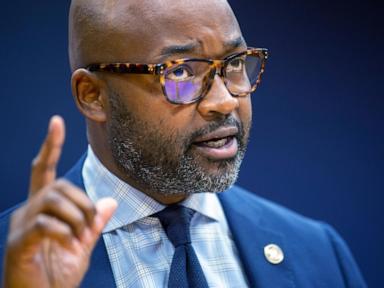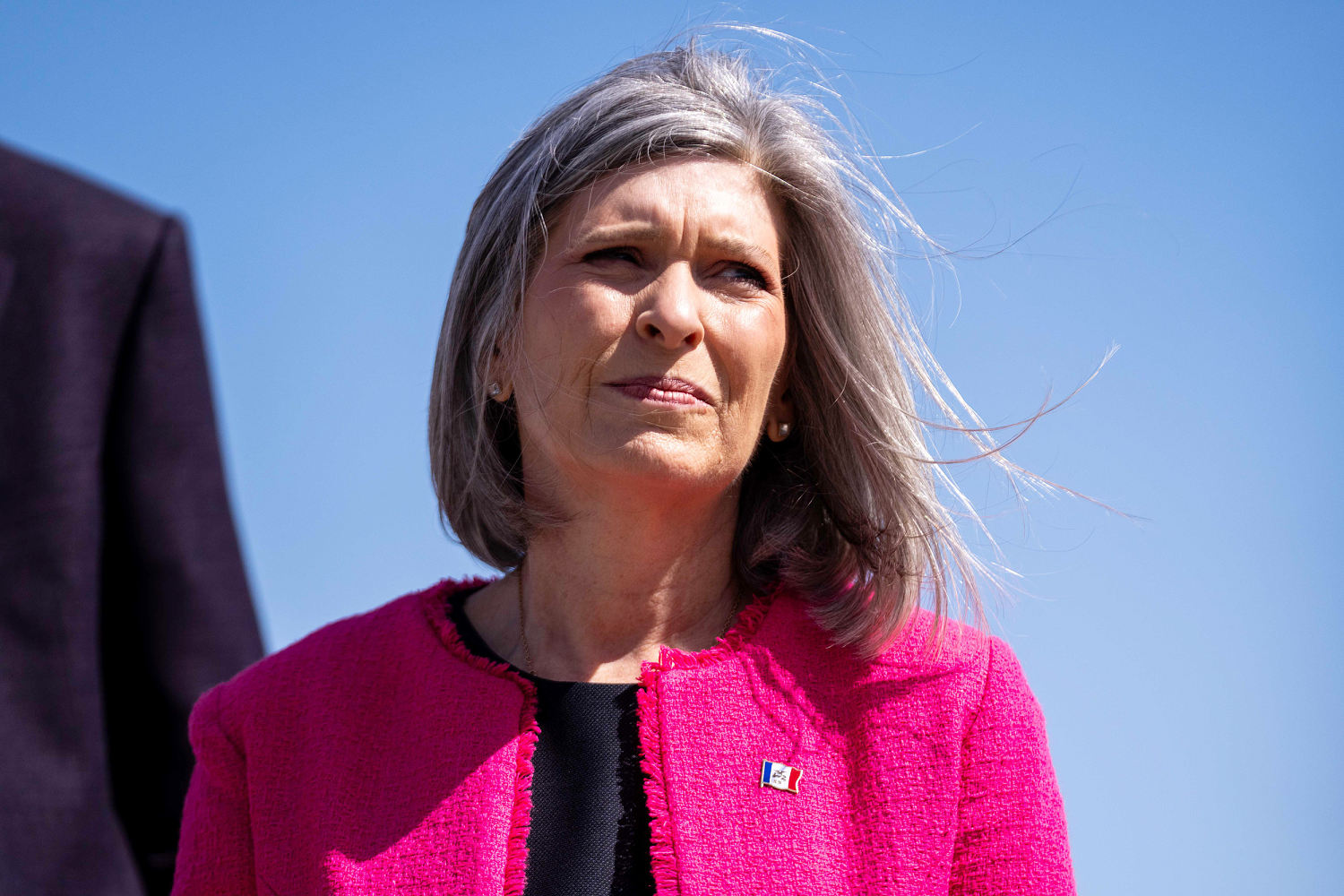A who’s-who of Republican elites is set to gather Tuesday at the National Building Museum for a swanky gala hosted by American Compass, the institutional home of conservative economic populism in Washington.
The black-tie affair is nominally being held to commemorate the fifth anniversary of the think tank, which was founded in 2020 by the conservative economist and former Mitt Romney adviser Oren Cass. But among American Compass’s supporters in the capital, the event is broadly understood to represent a victory lap of sorts, marking the ascendancy of Cass’s brand of economic populism in the Trump era and the newfound prominence of two of American Compass’s primary political allies: Vice President JD Vance and Secretary of State Marco Rubio — both of whom are scheduled to speak at Tuesday’s event.
Yet despite American Compass’s success in establishing itself as a buzzy hub of new conservative economic thinking in Washington, the gala comes at a particularly fraught moment for this ascendant wing of the GOP. Cass’s brand of economic thinking — which rejects the GOP’s traditional mélange of free trade, tax cuts and deregulation in favor of trade protectionism, industrial policy, immigration restriction and a relatively friendlier stance toward organized labor — has made definite inroads in Washington, as the Trump administration’s aggressive tariff policies and public courting of organized labor suggest. But the limits of the administration’s commitment to American Compass-style populism have been put on stark display in recent weeks thanks to the fight over Trump’s “big, beautiful” domestic spending bill.
The legislation, which is currently under consideration in the Senate, includes a slew of decidedly un-populist provisions — tax cuts for corporations and high-earners, rollbacks to Medicaid coverage and funding cuts for food assistance programs for low-income Americans — and has been met with unusually strong resistance among populist-leaning Republicans in the upper chamber, especially Missouri Sen. Josh Hawley, who has publicly opposed the bill’s Medicaid cuts.
Notably, Cass has also spoken out publicly against some of the bill’s tax provisions. In a recent interview with POLITICO Magazine, Cass criticized congressional Republicans for their inability to articulate a coherent economic rationale for proposed tax cuts, calling negotiation process “a death march through a series of choices that nobody really wanted to be making.” He also called out the House package for exacerbating America’s ongoing “fiscal crisis” by adding to the national debt — a claim that the Trump White House continues to deny, despite multiple independent estimates showing that the bill would add over $3 trillion to the debt over the next decade.
The tension inside the Building Museum will be heightened by the presence of Vance and Rubio, both of whom serve as ambassadors of sorts between the GOP’s economic populist wing and the Trump White House. In the Senate, both Vance and Rubio emerged as leading champions of Cass-style economic populism, with Vance taking a stand on tariffs and rail-safety regulation, and Rubio positioning himself as a vocal advocate of targeted industrial policy as a tool for the U.S. to compete with China. Vance’s elevation to the No. 2 spot in the administration was also a major win for the cohort: Vance and Cass have been friendly for nearly a decade, Cass told me, dating back to the publication of Hillbilly Elegy in 2016. The two have deepened their political ties in recent years as well, with Vance headlining a conference hosted by American Compass in 2023 and hiring the group’s former research director to his Senate office.
But now that both men have left the Senate for Cabinet-level roles in the administration, they have had to downplay any ideological daylight between Trump’s economic agenda and the conservative populist’s vision. That’s especially true on tax reform — where American Compass and others in the movement have unsuccessfully urged the administration to raise rates on corporations and high-earners — and welfare cuts, where populist have come out against the “big, beautiful” bills cuts to Medicaid and other popular social safety net programs.
The departure of Vance and Rubio from the Senate has also thrust Cass and his fellow economic populists in another sort of political bind. When acting as a unified bloc in the upper chamber, Vance, Rubio and Hawley (and, to a lesser extent, other populist-curious Republican senators like Tom Cotton and Eric Schmitt) wielded significant leverage over leadership. But with Vance and Rubio now out of the picture, Hawley has been forced into the uncomfortable position of allying with more moderate (and MAGA-skeptical) Republicans like Susan Collins and Lisa Murkowski to push populists’ preferred changes to Trump’s mega-bill.
That dilemma points to a broader challenge facing Cass and his fellow conservative populists at the dawn of the second Trump administration. Although American Compass has found champions among a handful of high-profile Republicans in Washington — and, importantly, has made inroads with a broad swath of younger Republican staffers on the Hill — they’ve yet to win broad-based support among rank-and-file Republicans. In particular, Republicans in the House have kept American Compass’s heterodox economic argument at a comfortable arm’s length, giving the anti-tax budget hawks in the Freedom Caucus disproportionate power over the economic agenda in the lower chamber.
That lack of broad-based political support is partly a function of the relative novelty of American Compass’s message — it is, after all, only five-years old — and partly a result of the personality of its founder. Cass, a bespectacled and soft-spoken budget wonk, has always appealed more to the self-styled conservative intellectuals in the Senate than he has to the conservative bomb-throwers in the House.
Cass is also not a typical go-along-to-get-along creature of the Washington swamp: As his recent criticisms of the “big, beautiful” bill suggest, he is one of the few MAGA-aligned conservatives in Washington who is still willing to offer principled criticisms of the administration’s actions — a tendency that has not always endeared him to White House officials. A self-described policy nerd, he is also something of an odd fit within smashmouth rhetorical frame of the MAGA mainstream. Last year, for instance, he lobbed some polite but not-so-subtle criticisms at Heritage Foundation President Kevin Roberts, arguing that Roberts’ incendiary comments about Project 2025 and the need to launch a “second American revolution” risked undermining Republicans’ more substantive policy goals.
With all these low-level tensions simmering in the background, the gala represents an opportunity for two of the administration’s high-profile emissaries to tend to some sore spots between the White House and the GOP’s economic populists. Vance — who is slated to sit for a Q&A with Cass at the gala — has emerged as a particularly adept mediator among MAGA’s various factions: In March, he used a similar speech at a high-profile gathering of right-leaning tech figures to broker a truce of sorts between the tech right and the populist-right.
In that respect, the Building Museum serves as a thematically appropriate venue for the event. With Trump’s domestic policy agenda dangling in a delicate legislative limbo, the administration needs to quickly build some bridges with the party’s economic populists to get the bill across the finish line.
.png)















 English (US)
English (US)